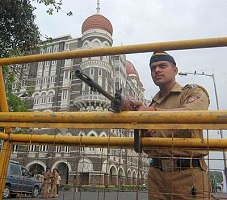India’s financial capital is the 16th most unsafe city in the world among the 60 featured in the Safe Cities Index 2017 released by Economist Intelligence Unit (EIU) earlier this month. Mumbai is ranked 45th in the biennial list that looks at parameters such as digital, health, infrastructure and personal security. The city was ranked 44 among 50 cities in 2015. The other Indian city in the list — New Delhi — was ranked 43. The safest cities were Tokyo, Singapore and Osaka, much like 2015. The three most unsafe cities were Karachi (Pakistan), Yangon (Myanmar), and Dhaka (Bangladesh).
“While the Safe Cities Index measures relative rather than absolute safety, there does not appear to have been a vast improvement in overall levels of safety since 2015,” states the report. “In parts of the developed world, particularly Europe, a series of terrorist attacks has affected personal security. At the same time, city governments in the developing world are still struggling to keep pace with the rapid expansion of their populaces, which is straining infrastructure, overwhelming health services and law enforcement.”
The frequency and severity of terrorist attacks, which was classified under the ‘personal security’ parameter affected rankings — one reason why Mumbai is ranked lower than Delhi.
Former senior policemen said security arrangements in the city were adequate enough to respond to terrorist attacks, but they are still not equipped to prevent incidents. “There is a looming apathy among the general population in the city about their sense of safety. We are not trained to behave so as to tackle situations from an early age, which is different in cities like Tokyo, Singapore, Israel or other European countries where compulsory training is given to everyone as soon as they turn 18,” said D Sivanandan, former Mumbai Police Commissioner and Director General, Maharashtra Police.








